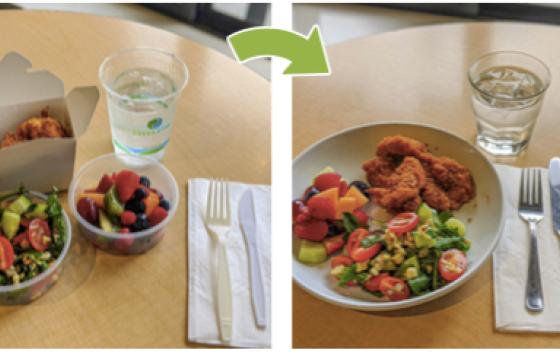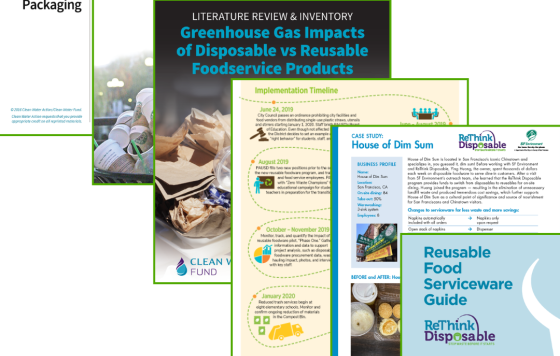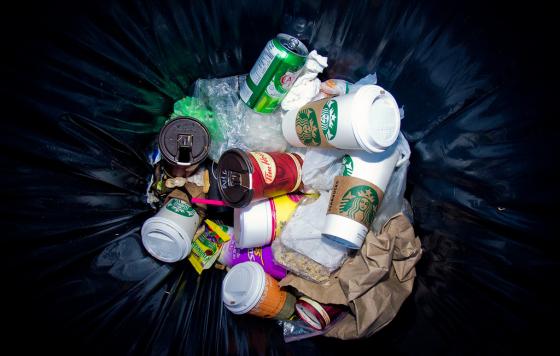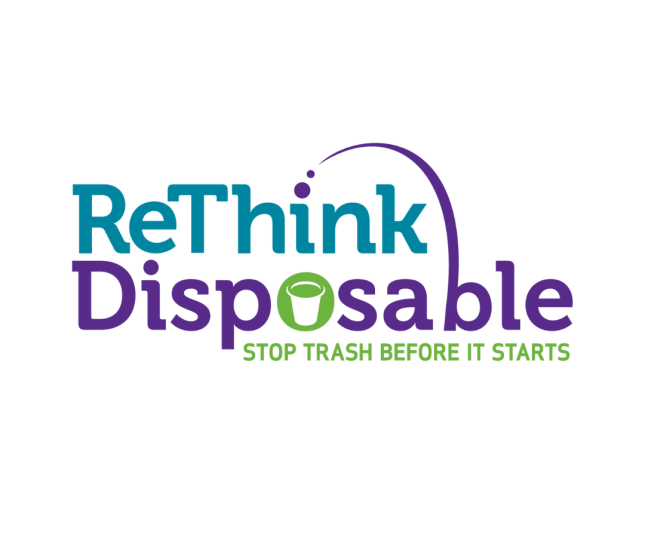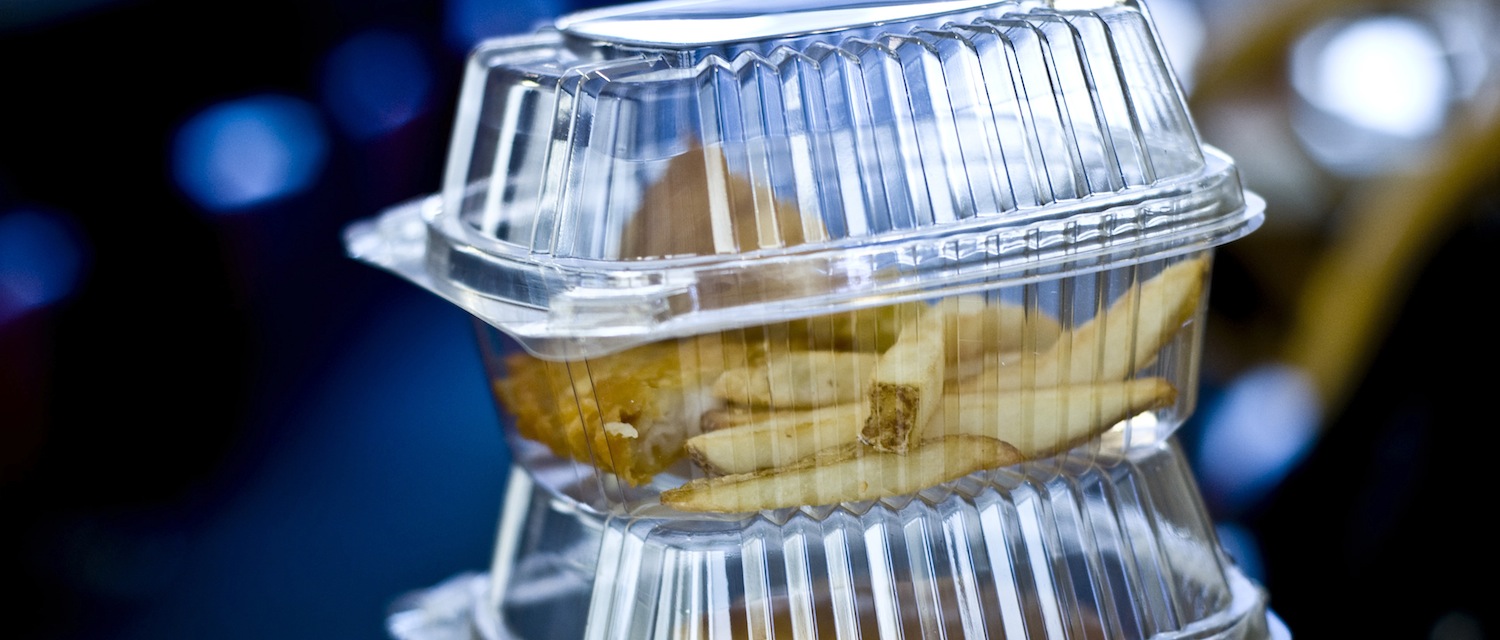
The Problem: Our Throw-“AWAY” Lifestyle
These days, almost everyone participates in our fast paced take-out food and beverage culture in North America. Single use disposable food and beverage packaging items are synonymous with a “throw-AWAY” lifestyle, but in truth, there really is no “AWAY.” We generate so much of this stuff that recycling can’t keep up and our oceans are filling with plastic.
Packaging waste (mainly from plastics) accounts for 30% of American household trash and is on the rise. It’s polluting the marine environment at a runaway pace: 80% of ocean litter comes from land based sources, and according to the 2011 Clean Water Action Study, 67% of litter in commercial streets is comprised of single use disposable food and beverage packaging. If we continue on this trajectory of global plastic production and consumption, there will be more plastic in the ocean than fish by 2050 (in weight). The estimated 6 trillion pieces of plastic choking our ocean injures and kills fish and wildlife through ingestion and entanglement and bio- accumulate up the food chain, threatening our health.
Clean-up efforts once these materials escape their intended collection systems are not a long term solution, but rather, a short term fix. Plastic pollution in our oceans is also only part of the problem. Even when trash stays within the intended waste stream, it still pollutes our communities and environment. Just because it is "managed" and out of sight does not mean the problem is solved. Landfills and incinerators are hazardous to our health and environment, and to dispose of our waste in these facilities costs our cities and municipalities millions of dollars a year.
Communities near incinerators, like the city of Newark, NJ, risk higher exposure to toxins in the air, including dioxin and mercury, and ultra-fine particles that are linked to cancers, asthma, and other health issues. The incinerator in Newark takes in about half of New York City's solid waste and trash from all of Essex County.
Recycling is a good concept but in practice it is failing. Contamination of recyclable materials and too much plastic production to begin with are causing the global recycling trade to fall apart and placing the burden of the world’s trash on developing countries. Plastic production is only increasing and is currently driven by fossil fuel extraction. Cheap shale gas in the U.S. is leading to hundreds of billions of dollars of investments in plastic production infrastructure and continue the trend for the next several decades. Because it is cheap to produce, it is cheap for manufacturers to use to make products, so more and more products are designed to be disposable.
Unless we prevent packaging at the source, or point of generation, it will continue to flow down the watershed to the ocean, requiring constant and costly management and removal, and will continue to disproportionately impact environmental justice communities near waste facilities. Packaging prevention in food service businesses and institutional dining operations is a win-win by saving them thousands of dollars and preventing large amounts of waste and litter prone packaging.
We’re up against a powerful enemy, though, in the plastics industry. Its lobby, the American Chemical Council, spends millions of dollars a year to convince policymakers that solutions lie down other avenues, placing the burden of management and responsibility on municipalities and taxpayers.
Join us, and let’s ReThink Disposable together.
ReThink Disposable in New Jersey is funded by grants including through the Northeast Water Pollution Control Commission (NEIWPCC), partnership with the Environmental Protection Agency (EPA) Trash Free Waters initiatives, and the Environmental Endowment of New Jersey.
